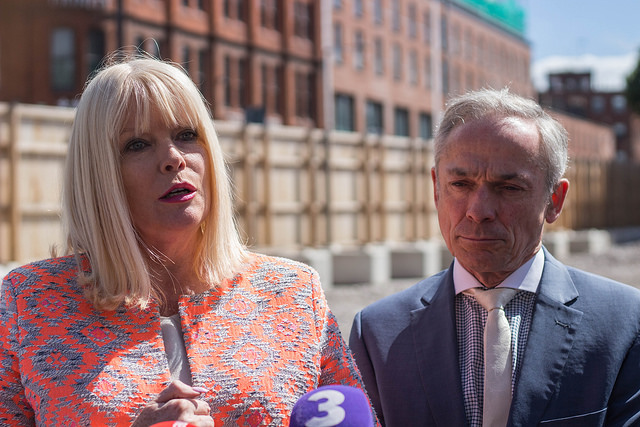Third-level institutions that fail to promote women to senior positions could face losing access to research funding as well as state funding in a bid to improve gender equality in Irish universities.
As the government launches a new gender equality taskforce, the Minister of State for Higher Education, Mary Mitchell O’Connor, said that “there is nowhere to hide now” for institutions that fail to promote women appropriately.
After several reports condemned the current gender imbalance in Irish universities, Mitchell O’Connor explained that “we need to send a message loud and clear to the institutions”, when speaking to the Irish Times.
Increasing amounts of data have shown the inequality that exists within higher education institutions in Ireland. Since Trinity was formed 425 years, ago, no third-level institution has had a female head. According to Trinity’s latest equality report seen by The University Times, only 25 per cent of Trinity’s top professors are women. This is despite the fact that just over half the lecturers in the country are female.
The taskforce, launched today, comes after the Higher Education Authority (HEA) published a report last year looking at gender inequality in Irish universities. The taskforce will also include the Ryan Shanks, Prof Philip Nolan, Dr Patricia Mulcahy and Sheila Nunan.
Shanks is the Head of Strategy Practice at Accenture and has worked in strategy implementation for 17 years, while is the President of Maynooth University. Mulcahy is the President of Institute of Technology Carlow and was recently appointed as Ibec South East Regional President. Nunan is the General Secretary of the Irish National Teachers’ Organisation (INTO), where she was president in 2005/2006. She is also the current president of the Irish Congress of Trade Unions (ICTU).
The taskforce has been tasked with preparing a prioritised three year action plan, in consultation with stakeholders.
The report recommended several changes in the employment structures of institutions, such as mandatory quotas for promotion with penalties applying to those who didn’t reach the quota. The new taskforce will conduct a further review of the practices and policies currently in place with a view to making further policy changes. Marie O’Connor will chair the group. Formerly a PwC partner for 30 years, O’Connor has a long history of championing women in business.
Mitchell O’Connor disregarded the argument that there are less women in top positions due to family commitments, calling the current state of affairs “fair and square discrimination”.
Recognising that the barriers women face are both structural and cultural, she said that “it is hugely important that women are represented in the top tiers of third level institutions”.
“What kind of message are we giving to young girls? They need to see role models in third level education”, she said.
Gender equality has become a major talking point for third-level institutions after a series of reports from the HEA and the government showed staggering inequality in the country’s top institutions. More resources are being dedicated to ensuring greater equality with some progress being made. Speaking in a press statement following the release of a HEA report on gender earlier this year, however, the new General Secretary of the Irish Federation of University Teachers (IFUT), Joan Donegan, said that progress was moving at a “snail’s pace”. She urged higher education institutions to focus on “proactive initiatives to address discrimination and impediments to women’s career progression in academia”.
Ciaran Molloy contributed reporting to this piece.







